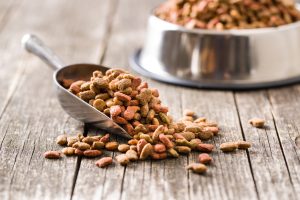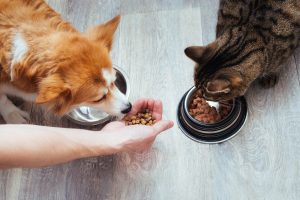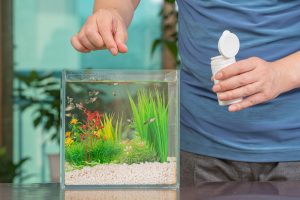Nutritional Guidelines for Different Pet Species: Tailoring Diets for Optimal Health

Providing your pet with a balanced and nutritious diet is fundamental to their overall health and well-being. However, different pet species have unique dietary requirements. In this blog post, we’ll explore nutritional guidelines tailored for various pet species, helping you understand the specific needs of your beloved companions and ensuring they lead happy, healthy lives.
Nutritious Diet for Different Pet Species
Understanding the dietary requirements specific to each pet species is crucial in promoting their longevity, energy, and overall health, enhancing the bond between pet and owner:
Dogs: More Than Just Kibble
Dogs are omnivores, meaning they require a balanced diet of proteins, carbohydrates, fats, vitamins, and minerals. Opt for high-quality dog food that lists meat as the first ingredient. Consider your dog’s age, size, and activity level when selecting food. Some dogs benefit from specialized diets, like grain-free or hypoallergenic options, addressing specific health concerns.
Cats: Obligate Carnivores with Unique Needs
Cats are obligate carnivores, meaning they need a diet primarily composed of animal-based proteins. Look for cat food rich in high-quality proteins and low in carbohydrates. Wet cat food can be an excellent choice, as it provides essential hydration. Avoid feeding cats dog food, as it lacks the nutrients they need.

Rabbits and Small Mammals: Fiber is Key
Rabbits, guinea pigs, hamsters, and other small mammals require a high-fiber diet. Timothy hay is an essential component of their diet, aiding in digestion and preventing dental issues. Supplement their diet with fresh vegetables and fruits, ensuring they are safe for consumption. Avoid feeding them foods high in sugar or fats.
Birds: Beyond Seeds
Birds, such as parrots, canaries, and finches, need a diverse diet beyond just seeds. Pelleted bird food offers a balanced mix of nutrients. Fresh fruits, vegetables, and small amounts of grains and lean proteins can complement their diet. Avoid avocado, chocolate, caffeine, and alcohol, as they are toxic to birds.
Fish: Balanced Nutrition for Aquatic Friends
Fish require a balanced diet to thrive. Commercial fish food, available in flakes, pellets, or granules, is formulated to meet the nutritional needs of different fish species. Some fish, like herbivorous cichlids, may require specialized diets containing plant matter. Avoid overfeeding, as it can lead to water quality issues.

Benefits of Good Nutrition
Quality pet nutrition offers a multitude of benefits, including:
Enhanced Skin and Fur Health:
Pets require a precise balance of fatty acids to maintain healthy skin and a lustrous coat. Without these essential nutrients, your pet’s skin can become dry and prone to issues, leading to shedding, breakage, or irritation. Fatty acids play a crucial role in preventing skin problems, reducing irritation, and combating inflammation.
Improved Muscle Tone and Overall Body Condition:
Protein, a vital nutrient, is essential for building organs, muscles, hair, skin, and other tissues in your pet’s body. Since your pet’s cells are primarily composed of proteins, an adequate protein intake is necessary for cell repair and growth. This requirement is especially crucial during periods of growth, pregnancy, and young age.
![]()
Disease Prevention and Immune System Support:
Vitamins and minerals are indispensable components of your pet’s diet, serving as powerful disease preventatives and supporters of the immune system. Various vitamins play a role in minimizing cellular damage, while minerals facilitate the healthy functioning of the immune system, ensuring your pet’s body is equipped to combat illnesses effectively.
Facilitating Proper Digestion:
Carbohydrates in your pet’s food provide essential fibers that aid in digestion and elimination. Easy-to-digest food is pivotal, enabling your pet to absorb all the vital nutrients efficiently, ensuring optimal health and well-being.
Conclusion
Understanding the nutritional needs of different pet species is crucial for their health and happiness. Always consult with your veterinarian to determine the best diet for your pet. Additionally, provide fresh, clean water at all times, as proper hydration is as vital as a balanced diet. By catering to the specific dietary requirements of your pets, you’re ensuring they enjoy a life filled with energy, vitality, and longevity, making your bond with them even more rewarding. Remember, a well-fed pet is a happy pet!